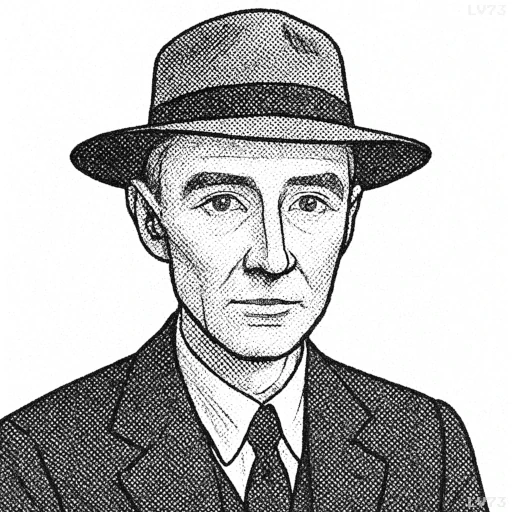“In some sort of crude sense, which no vulgarity, no humor, no overstatement can quite extinguish, the physicists have known sin; and this is a knowledge which they cannot lose.”

- April 22, 1904 – February 18, 1967
- American
- Theoretical Physicist, Scientific Director of the Manhattan Project, “Father of the Atomic Bomb”
table of contents
Quote
“In some sort of crude sense, which no vulgarity, no humor, no overstatement can quite extinguish, the physicists have known sin; and this is a knowledge which they cannot lose.”
Explanation
This quote was delivered by J. Robert Oppenheimer during a 1947 lecture at MIT, reflecting on the moral consequences of the atomic bomb and the role physicists played in its creation. The phrase “the physicists have known sin” is a striking moral judgment, acknowledging the irreversible ethical burden that came with unleashing nuclear power. The language emphasizes that no deflection—neither vulgarity nor humor nor exaggeration—can erase the reality of what was done.
Oppenheimer’s words are grounded in the post-World War II atmosphere, where the scientific community was reckoning with the devastating power of Hiroshima and Nagasaki. As the scientific director of the Manhattan Project, Oppenheimer bore unique personal responsibility. By invoking “sin,” a religious and ethical concept, he elevates the dilemma beyond politics or science—it becomes a spiritual and human failing that cannot be rationalized away.
In modern terms, this quote warns of the ethical entanglements of scientific progress. Whether in artificial intelligence, biotechnology, or climate engineering, researchers today still grapple with how to balance discovery with responsibility. Oppenheimer’s reflection is a cautionary reminder that knowledge carries a weight that cannot be undone, and that scientific brilliance without ethical foresight can lead to enduring regret.
Would you like to share your impressions or related stories about this quote in the comments section?




